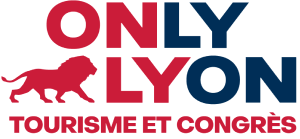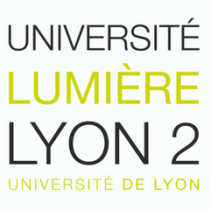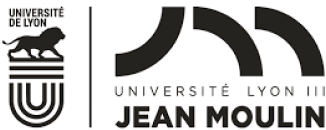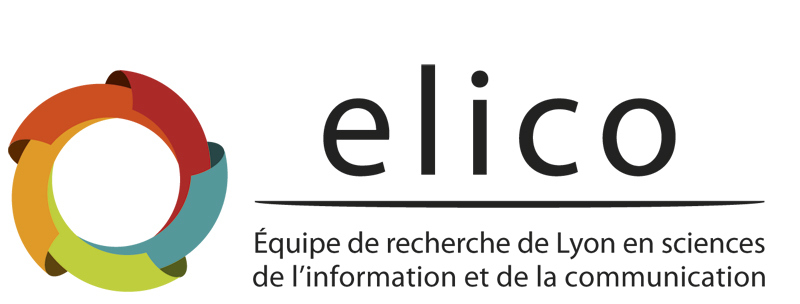
Inhabiting the planet: Challenges for media, communication and beyond
Our times are marked by the epochal changes that societies have experienced since the end of the grand narratives (Lyotard, 1979) and the disenchantment of the world (Gauchet, 1985). Many intellectual frameworks have been proposed to explain (with more or less critical distance) the rapid and deep transformations and evolutions of recent decades.
The concepts of radical modernity (Giddens, 1990), risk society (Beck, 1992), hypermodernity (Ascher, 2001, 2009), and social acceleration (Rosa, 2010), among others, reflect different perspectives on these transformations.
They ultimately address the fundamental questions at the core of IAMCR 2023: What does it mean to be human in a digital world? What does it mean to build a common future?
Over the past decade, alternative media, militant communities, opinion leaders (Wallace- Wells, 2019), philosophers and scholars (Morin, 2011; Latouche, 2016; Bourg et al, 2020) have warned of the irreversible effects of climate change which could make the planet uninhabitable. Others have drawn attention to the rise of stark geopolitical, sociocultural and religious tensions. These prophetic and pessimistic views often refer to structural problems related to things such as access to essential natural resources like water, massive deforestation in South America or Southeast Asia, the proliferation of viruses potentially causing hard-to-control pandemics (Ebola, Covid-19), and local but recurrent conflicts, violent oppression and even genocide.
Other voices express strong confidence in the collective capacity to build a path to the future based on virtuous technologies (Rifkin, 2011, 2014).
Whatever the interpretations might be, the digitalization of society and the technological transformation of nature are key problematics that require sociopolitical debate and governance (Feenberg, 1999, 2002). These are the issues that stand at the heart of IAMCR 2023, which seeks to provide a forum where the international community of media and communication scholars and researchers can reflect on and debate challenges related to five interconnected topics.
- Humanity and progress
- Democracy
- Media, information and communication
- Cities and territories
- Environmental accountability
1. Humanity and progress
Technology based progress has always been an engine of modern societies, but dazzling leaps forward have been experienced in recent decades thanks to social transfer and dissemination of innovations, especially in the fields of computer science, engineering, and medicine.
These significant changes raise specific and pressing questions relating to the logic of scientific and technological innovation and its dialectics with society –– from the perspectives of dissemination and appropriation, sociopolitical control and ethics, ideological legitimation and purpose, imaginaries and shared meaning... These issues exceed the matter of how innovation engages with society in ongoing transformations and they enlist progress as a challenge to the future.
While individualism pervades all spaces of human action, new kinds of networks and communities change the meaning of geographical proximities and the sense of national belonging. Moreover, the general move toward work digitalization and the rise of self- entrepreneurship catalysed by digital platforms raises new questions on boundaries between work and the private sphere and new forms of domination.
Humanity and progress challenges may be approached from different angles. How do traditional socializations evolve in such a context: are they marginalized, hybridized or reframed? What are the shapes of socialization? How do digital technologies and social media in particular impose frames and norms in terms of communication, self-(re)presentation, lifestyle and social behaviour? How are processes of co-operation and situations of domination reframed? Along with digitalization, how do these processes result in art or entrepreneurial creativity? What is the contribution of the commons (including new ones, like knowledge commons) to answering these challenges? Moreover, what results from the new forms of connectivity, and what could be expected in terms of big social data? How are major social concerns, like health for example, reshaped in relation to technological progress and the new industrial ecosystem at work (including platforms and other digital giants)?
Keywords: Commons - Paradigm of cooperation - Big social data - Inclusive creativity - Digital health - Progress vs innovation - Technology and society - Ethics of technology and progress - Privacy, online sociability, digital self - Trends, fashion and social networks - Future, Imaginaries, Representations.
2. Democracy
Can democracy survive at the planetary scale? Democracy was built in societies living in well-defined territories, by citizens belonging to specific countries and demanding more political power. Globalization tends to challenge this tight link between democracy and nation. Our societies are more interrelated and more aware of their interrelations. Here, we are addressing issues of democratic political action in a global world. How does globalization affect not only public action but also citizen action? Is citizen participation, or at least consultation, still possible and effective when the local aims are strongly constrained by inter- and trans-national processes? Is it conceivable and practicable at the supra-national level? A particular emphasis will be put on whether or not digital technologies can challenge globalization. Does digital activism sustain the development of a renewed citizenship? Or does it necessarily put democracy at risk of being undermined by digital populism?
Keywords: Public action - Citizen action - Digital populism - Digital Activism - Digital citizenship and social movement - Citizen participation/consultation.
3. Media, information and communication
Digitalization of information and communication has brought to light major challenges our societies will have to confront in the coming decades. Media and cultural industries are facing historical challenges in terms of economic models, audience practices and expectations, and especially societal status. Media ecosystems have profoundly changed and various forms of competition and interdependence exist between editorial media, social media, portals and platforms, and so on.
The logic of production, distribution and consumption of various forms of editorial content, particularly news, have been transformed by a complex set of ideologies (civic journalism, collaborative journalism), professional routines (data journalism, data driven fact-checking, amateur content) and technologies (audience monitoring, automated journalism, news feeds). The frame and habitus of reception has spectacularly evolved in terms of expectations, skills and practices, and audience pressure is fiercer than ever with its constant monitoring and exploitation.
This complex and rapidly evolving context raises key societal challenges which the conference needs to address: is a new “regime of truth” about to be shaped? What is the current meaning of seminal notions, such as “audience” and “public”? What is the editorial impact of the economic constraints which media and cultural industries have to deal with? What are the (new) interconnections between media and cultural content, advertising and various forms of PR? How do amateur practices fit with the new industrial paradigm of media, cultural industries and platforms? What forms of cooperation are possible between professionals and amateurs? May data stand for information and news and which forms of mediation are at work? What are the urgent stakes and limits of the ethics of algorithms, in terms of data transparency, sociopolitical governance or professional and organizational practices?
Keywords: Media and cultural industries, platforms - Data journalism, fact-checking, automated journalism - Regime of truth, post-truth - Audience, public, reception practices – Professional and amateur practices - Advertising, PR, data-marketing - Ethics of algorithms.
4. Cities and territories
Whereas the growth of urban spaces and services is no longer in doubt at the global scale, it is accompanied by transformation of cities and territories that varies widely from one country to another.
New cities (e.g. Egypt’s New Administrative Capital, Poundbury or Shenzhen), urban regeneration cities (Shanghai, Lisbon, or Al-Abdali), cities which are opening up (Lyon, Berlin or Seoul), cities building partnerships with BigTech (Monterrey, Toronto or Hangzhou), and intermediary cities which seek to exist and develop in urban areas spread across two countries (Bayonne-San Sebastián, Bijor-Hajdú Bihar) are examples of original urban configurations. They all claim three key features - smart city, sustainable city, creative city - that need to be interrogated. These three axes emphasize lifestyles (hypermodern, respectful, low or high tech, zero waste, community- oriented, etc.), focus on data services and data-based activities (for mobility, accessibility, self- help, good practice, community ideals, etc.) and promote individual postures (participation, creativity, solidarity). All these alter profoundly the urban ecosystem and its relationship to rural and surrounding territories. However, public actors and the national intervention frameworks may impose constraints and limits that also strongly mark the transformation of cities, although these actions may be themselves part of the logic of openness and citizen participation.
Keywords: Smart and sustainable cities - Urban regeneration and urbanization - Open data - Local territories and communities - Short cycle - Urban re-vegetation - Mobilities.
5. Environmental accountability
To respond to climate change, public mitigation and adaptation policies are being put in place to achieve a reduction in energy consumption and lower consumption of resources. How do public institutions report on their implementation, actions and results in this area? How to tell, show and convince, support change, or challenge citizens’ responsibility? What ideology and ethics of collective and individual behaviour and responsibility are underpinned by public discourse in this area? The position of NGOs must also be considered through their actions, lobbying and mediation conducted in the political and media landscape. Finally, citizen participation is both an engine of action and a source of inspiration for potential public policies. Confronted with anxiogenic narratives (collapse, survivalism, and so on), governments rely on narratives of solutions and innovation (transition, smart city, bioengineering) that find local expressions. Digital technology, as the foundation of the Smart City, is changing mediations: exchange between actors but also production and consumption of goods and services. This transformation is coupled with ecological change. The debate on the ecological cost of information technologies is based on a low-tech/high-tech opposition that should be questioned. We can observe the same phenomenon with 5G or intelligent objects that spark controversies to be discussed (environmental cost/innovation race; public or citizen arbitrage; high-low techs; needs or business model).
Keywords: Digital and energy sobriety - Social practices and low-tech - Smart/connected objects and everyday life - Public discourses and ecological transition.
References
Ascher, François (2001), La Société hypermoderne: Ces événements nous dépassent, feignons d’en être les organisateurs. Paris: Éditions de l’Aube.
Ascher, François (2009), L’âge des métapoles. Paris: Éditions de l’Aube.
Beck, Ulrich (1992), Risk Society: Towards a new modernity. London: Sage Publications.
Bourg, Dominique et al (2020), Retour sur Terre: 35 propositions. Paris: PUF.
Feenberg, Andrew (1999), Questioning Technology, Milton Park: Routledge.
Feenberg, Andrew (2002), Transforming Technology: A Critical Theory Revisited, Oxford: Oxford University Press.
Gaucher, Marcel (1985), Le désenchantement du monde : Une histoire politique de la religion. Paris: Gallimard.
Giddens, Anthony (1990), The Consequences of Modernity. Cambridge: Polity.
Latouche, Serge (2016), Les précurseurs de la décroissance, une anthologie. Paris: Eyrolles.
Lyotard, Jean-François (1979), La Condition postmoderne: Rapport sur le savoir, Paris: Éditions de Minuit.
Morin, Edgar (2011). La voie : pour l’avenir de l’humanité, Paris: Fayard.
Rifkin, Jeremy (2011). The Third Industrial Revolution: How Lateral Power is Transforming Energy, the Economy, and the World. NY: Palgrave Macmillan.
Rikfin, Jeremy (2014), The Zero Marginal Cost Society: The internet of things, the collaborative commons, and the eclipse of capitalism. New-York: Palgrave Macmillan.
Rosa, Hartmut (2010), Alienation and Acceleration: Towards a Critical Theory of Late- Modern Temporality. Aarhus: Nordic Summer University Press.
Wallace-Wells, David (2019). The Uninhabitable Earth: Life after warming. London: Penguin Ramdom House.






